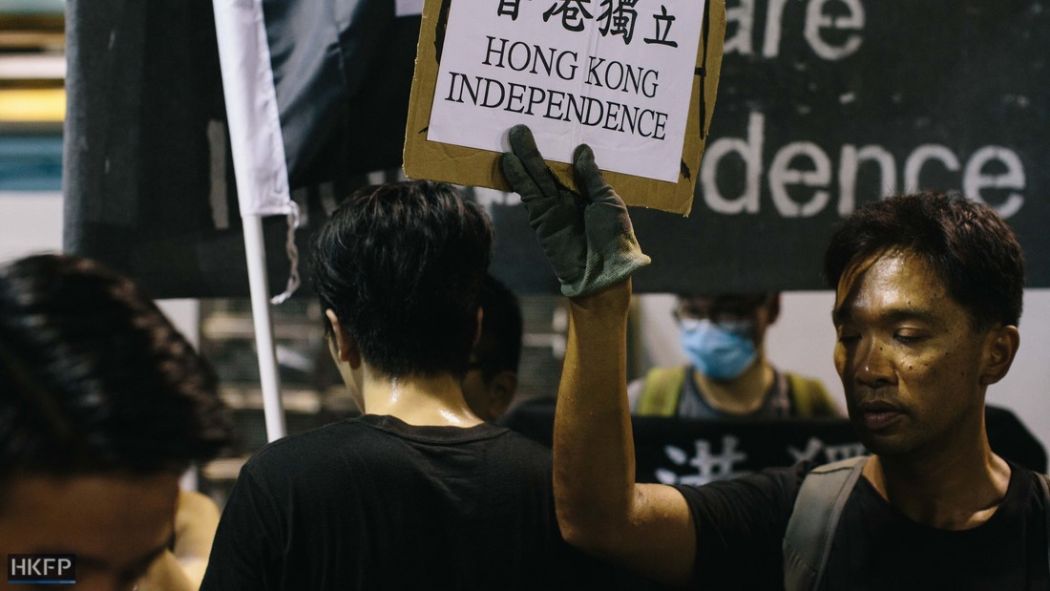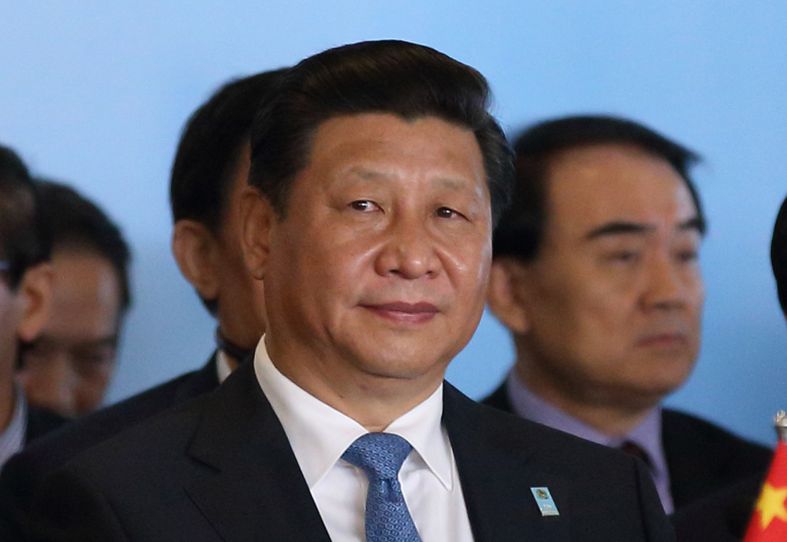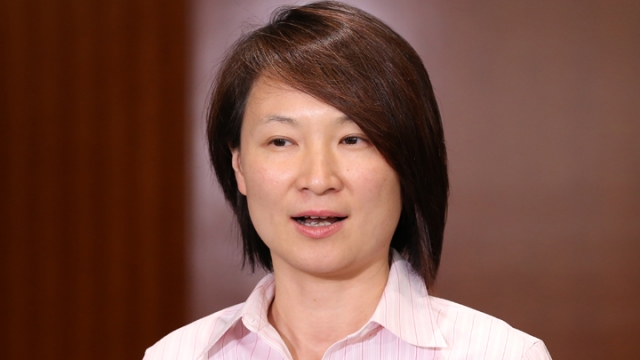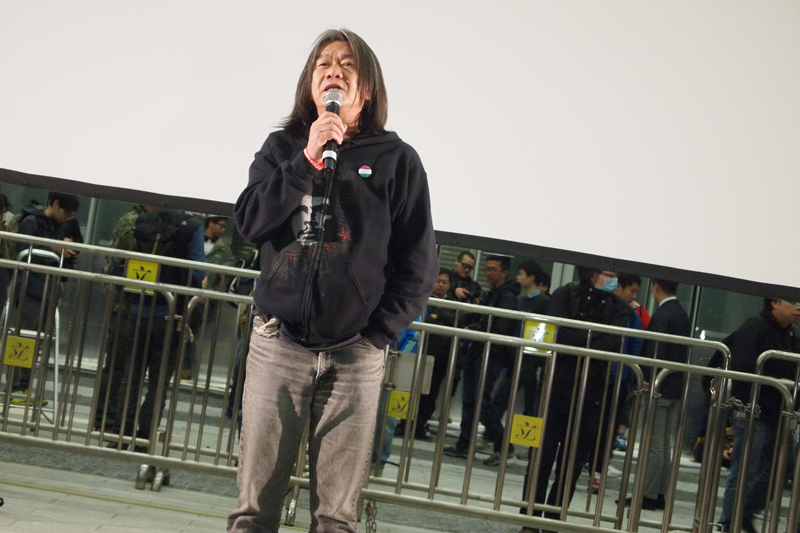The bans against six candidates for advocating Hong Kong independence have added a new dimension to the coming September 4 Legislative Council election. Suddenly, everyone is talking about the prospect, whereas before it was just another of those far-out ideas that local conservatives think college students dream up to waste time and make trouble for the authorities.
But for all the anxiety over a possible post-Occupy pro-independence radical surge on September 4, preliminary polling suggests there may be only minimal change in the Legislative Council’s balance of political forces once the dust settles.

For one thing, the council’s design makes anything else almost impossible. The 70-seat body is so thoroughly spliced and diced that it would take a true tsunami-like wave election to make much difference in its political composition.
Beijing’s objective … when the design was being created and written into Hong Kong’s post-1997 Basic Law constitution … was to prevent dissident disloyal parties from being able to dominate and if nothing else that aim has been achieved. But the design also means that it doesn’t have to be a wave election to make a difference.
Even a few seats more or less will be enough to register an impact. For this election, it means five seats to be exact. That’s the number pro-establishment forces need to create a critical two-thirds super-majority.
Re-capping council complexities
For the just-ended 2012-2016 term, democrats occupied only 27 seats; their pro-establishment (pro-Beijing, pro-business, conservative) opponents, 43. This refers to the 70-seat body as a whole. A two-thirds vote for the council as a whole is required, for example, to pass the political reform legislation that pro-democracy legislators succeeded in vetoing last year and that Beijing reportedly hopes to revive after the coming election.

The council, however, is divided into two blocs of 35 seats each. When it was being designed, in the 1980s while the Basic Law was being drafted, Beijing was looking to achieve something like a two-house effect. An upper conservative house would be able to check the populist dangers that lurk when ordinary folk are allowed into the political arena via one person, one vote.
Hence any motion must be passed by a majority of each bloc voting separately. And the two blocs are elected very differently: with 35 seats directly elected by Geographic Constituencies and 35 filled via occupation-based Functional Constituencies. These latter were designed to placate pro-Beijing, pro-business, conservative concerns and have fulfilled their intended purpose many times over.
The 2012-2016 council was divided overall (with one or two sometime crossovers) into 27 democrats and 43 others, but internally, the two blocs were further differentiated politically:
LegCo design, 2012-16
| GEOGRAPHIC CONSTITUENCIES | 35 | 18 democrats | 17 others |
| FUNCTIONAL CONSTITUENCIES | 30 | 6 | 24 |
| HYBRID/SUPER-SEATS | 5 | 3 | 2 |
| TOTALS | 70 | 27 | 43 |
The task of promoting Beijing’s interests has been entrusted to its main local surrogate party, the Democratic Alliance for the Betterment and Progress of Hong Kong (DAB). The DAB coordinates with the pro-Beijing Federation of Trade Unions (FTU), which also acts as a political party for the purpose of contesting elections. This creates a sort of trifecta: the middle-class DAB and working class FTU compete with democrats in the Geographic Constituencies; conservative business interests dominate the Functional Constituencies. Democrats have minimal chances of success in the FCs, as the above table indicates.

Hence the number of seats now needed by pro-establishment forces to achieve an overall two-thirds super-majority is 4-5. Meaning they need to keep the 43 seats they held in the 2012-2016 council and add five more to be “safe” … as the British used to say when designing their colonial legislative assemblies.
Those hybrid super-seats
The five hybrids, dubbed super-seats, are the result of then Democratic Party chairman Albert Ho’s ill-fated compromise decision in 2010. It illustrates why the idea of “compromise” has acquired a bad name among pro-democracy partisans.
The government’s idea, working with the DAB between 2005 and 2010, was to reform the Legislative Council by eventually eliminating the much-maligned “rotten borough” Functional Constituencies. But the cure was as bad as the problem it was supposed to solve. The government’s aim was to eliminate the FCs by transforming them into indirectly-elected seats that would be filled by District Councillors. This experiment was to begin with five seats.
The government proposed, the first time abortively in 2005 and then again in 2010, to eliminate five FC seats and add five seats for District Councillors. The 400+ District Councillors would nominate and elect five of their number to become legislators. The official logic was that since District Councillors are directly elected at the base of the election pyramid, the whole Legislative Council could eventually become “directly” elected, as promised by the Basic Law.

If the initial experiment with five seats worked, that is. The District Councils are dominated by pro-Beijing loyalists and their conservative allies so it had the added attraction of looking, to the government, like a “safe” bet.
Albert Ho was then negotiating (by prior agreement among them on pan-democrats’ behalf) with officials in Beijing’s Hong Kong liaison office. But it was always understood that the final decision would be Beijing’s to make. As the negotiations wore on fruitlessly over several months, Albert Ho decided … without much opposition from others … that he would agree to the government’s proposal … but only if the nominated District Councillors could be voted on by the Hong Kong electorate as a whole.
At the very last minute just ahead of the approaching deadline and with no advance warning, Beijing unexpectedly agreed to Ho’s condition. And so this odd hybrid was born … to loud cries of dissent from within the pro-democracy camp that continue to reverberate even as a new more radical generation has appeared.
Only District Councillors can nominate and be nominated for these five seats. But the entire city, voting as a single constituency, then decides. Thus, all registered voters city-wide who are not qualified to vote in the traditional Functional Constituencies can vote for a super-seat candidate. Everyone, in other words, has two votes: one to be cast in a Geographic Constituency, and one for use in either one of the traditional Functional Constituencies or in Albert Ho’s new District Council constituency.

The voting system for the latter is, like the Geographic Consistencies, proportional representation via a single transferable vote (June 27 post).
Once elected, these councillors are otherwise counted as Functional Constituency legislators and their votes in the council are calculated as belonging to the FC side of the house.
2016: Candidates, seats, constituencies
| Candidate lists | Candidates | Seats | Voters | |
| Hong Kong Island | 15 | 35 | 6 | 627,807 |
| Kowloon West | 15 | 37 | 6 | 488,129 |
| Kowloon East | 12 | 22 | 5 | 601,567 |
| New Territories West | 20 | 53 | 9 | 1,086,511 |
| New Territories East | 22 | 66 | 9 | 975,071 |
| Total | 84 | 213 | 35 | 3,779,085 |
The numbers of candidates, seats and electors for each contested* functional constituency (other than the District Council (second) functional constituency) are as follows:
| Candidates | Seats | Voters | |
| Agriculture and Fisheries | 2 | 1 | 154 |
| Transport | 2 | 1 | 195 |
| Education | 2 | 1 | 88,185 |
| Legal | 2 | 1 | 6,773 |
| Accountancy | 2 | 1 | 26,008 |
| Medical | 2 | 1 | 11,191 |
| Health Services | 2 | 1 | 37,423 |
| Engineering | 3 | 1 | 9,406 |
| Architectural, Surveying, Planning and Landscape | 3 | 1 | 7,371 |
| Social Welfare | 5 | 1 | 13,824 |
| Tourism | 3 | 1 | 1,426 |
| Commercial (first) | 2 | 1 | 1,086 |
| Financial Services | 3 | 1 | 622 |
| Sports, Performing Arts, Culture and Publication | 2 | 1 | 2,920 |
| Textiles and Garment | 2 | 1 | 2,332 |
| Wholesale and Retail | 2 | 1 | 6,727 |
| Information Technology | 2 | 1 | 12,115 |
| Catering | 2 | 1 | 5,543 |
| Total | 43 | 18 | 233,301 |
* The key word is “contested.” There are 28 FCs but 10 are uncontested.
The numbers of candidate lists, candidates, seats and electors for the District Council (second) functional constituency are as follows:
| Candidate lists | Candidates | Seats | Voters |
| 9 | 21 | 5 | 3,473,792 |
The gazette notices and information about the candidates are available on the election website (www.elections.gov.hk).
Voting tactically
Everyone laughed at Benny Tai’s idea when he announced his Thunderbolt Plan for coordinating candidates and voters earlier this year. But his logic is beginning to make itself felt now that the University of Hong Kong’s POP rolling poll is in motion.
The need to impose some sort of candidate-coordination discipline among democrats goes back a decade and more, but has fallen by the wayside this year amid the infectious enthusiasm of the new post-Occupy generation.
The camp has now fractured into even more parts than before and all have succumbed to the temptation of fielding more candidates than can possibly win. The novices all claim they’re gaining experience and building their voter base. Those old enough to know better say they hope to see a higher voter turnout this time around. None worry about splitting the pro-democracy vote and giving extra advantage to their common adversary … at least not until a few days ago.
The divisions among them can be categorized as pre- and post-Occupy (referring to the 2014 street occupation protest movement), now further sub-divided into greater and lesser degrees of radicalism.

The six candidates who have just been banned for advocating Hong Kong independence qualify as being the most radical post-Occupy. The activists who organized themselves into the Youngspiration alliance and Joshua Wong’s Demosisto party are post-Occupy, less radical for not advocating outright independence.
In contrast, the Civic Passion-Hong Kong-Resurgence-Proletariat Political Institute alliance of Wong Yeung-tat, Dr. Horace Chin, and Raymond “Mad Dog” Wong Yuk-man are pre-Occupy radical without the demand for independence. They speak instead of Hong Kong-focused localism, autonomy, and self-determination.
“Long Hair” Leung Kwok-hung’s League of Social Democrats and People Power, one-time pre-Occupy radical friends, then competitors, and now back campaigning together again, count as pre-Occupy moderate radicals who do not advocate independence.
For examples of “model” campaign strategizing, however, we must look to their pro-establishment competitors to illustrate how it should be done. They are led by the DAB and FTU and strategize with a few long-standing loyal allies like former Security Secretary Regina Ip. Another somewhat less loyal ally is the pro-business Liberal Party.

It is said that DAB and FTU candidates work with a coordinating committee and liaise with Beijing liaison office personnel, although this is only hearsay and not part of the usual rhetoric used against them on the campaign trail. But however achieved, their strategies are disciplined, coordinated, and calculated to win as many seats as possible while wasting as few votes as possible.
By now, pro-Beijing loyalists know the approximate extent of their voter base in different constituencies and they field just enough candidates to maximize voter strength. The turnout can always be bolstered somewhat if it seems down in key localities on Election Day. This is the work of energetic campaign support teams, spotters outside polling stations … even though exit polling is not supposed to be used for this purpose … late afternoon Election Day phone calls, and so on.
This year pro-establishment forces have a few loose ends that they failed to discourage, but only a few. Patriotic activists from Voice of Loving Hong Kong insisted on contesting in Kowloon East. One-time Functional Constituency legislator, Chim Pui-chung had a fraud conviction and did jail time. But five years have passed since then, which re-qualifies him to run. He’s standing as an independent on Hong Kong Island.
If the early HKUPOP polling is any indication, however, these fringe candidates will have minimal impact on the pro-establishment camp’s prospects … since its candidates have otherwise been so carefully selected and positioned to win.
In fact, if the election had been held during the second week of August, Hong Kong Island would be looking to another pro-establishment seat majority, as in 2012 when the seven-seat result broke 4:3 in favor of the establishment candidates.

Now with six seats in the constituency, proportional representation decrees that about 16% of the vote is needed to win one seat. Any excess is transferred to the second candidate on the winner’s list On the other hand, if no candidate wins 16%, seats are simply allocated according to the absolute number of votes won.
In mid-August, that would have given: the candidate list headed by Regina Ip two seats; one to the DAB; and another to telecommunications entrepreneur Ricky Wong Wai-kay who has suddenly developed an interest in politics. The FTU didn’t quite make the cut but its candidates always manage to pull through somehow.
Wong is the wild card on Hong Kong Island this year, a surprise entrant into the race with territory-wide name recognition. The one plank in his platform that appeals to democrats is “ABC,” which stands for “Anyone but CY.” The reference is to Hong Kong Chief Executive CY Leung who Wong blames for his high-profile abortive struggle to win a TV broadcasting license from the government.
Otherwise, Wong would be regarded as a pro-establishment candidate with one-time loyalist ties. Among other things he favours cross-border infrastructure projects and Beijing’s 2014 electoral reform mandate, saying it will all work out in the end.*
Even ABC can be a pro-business tag line, of course. Wong was once a Liberal Party member and the Liberal Party doesn’t think much of CY either. Since the ABC fan club by now includes most of the democratic camp, Ricky Wong seems set to absorb votes from both sides. But given the oversupply of pro-democracy lists, he’ll probably do more damage to them than their opponents.

The super-seat hybrid District Councils constituency doesn’t look too promising for democrats either. There are altogether nine candidate lists: three pro-establishment, six for democrats and the line-up offers another good illustration of how to win and how to lose. With five seats, the two camps can expect to win two seats each. Serious competition is for the fifth seat.
In 2012, they fielded three lists each, with three strong candidates: two each to win and one for back up just in case. A democrat, Albert Ho, won the fifth seat.
This year the pro-Beijing camp is again fielding three lists, but democrats have six. These include: two Democratic Party lists, one Civic Party, one Association for Democracy and People’s Livelihood, one Neighborhood and Workers’ Service Centre, one Neo Democrat.
Panic time?
Suddenly, tactical voting doesn’t seem like such a bad idea after all. Two weeks ago, Democratic Party elder Yeung Sum did what politicians always do in such situations: he questioned the reliability of HKUPOP polling.
He nevertheless acknowledged that the party’s three novice candidates heading its lists on Hong Kong Island plus New Territories East and West are in danger of losing. With only two others likely to win, in Kowloon East and West, this election could leave the once dominant Democratic Party with its smallest ever team of legislators.

But that was not his only worry. He also noted that the party’s main super-seat candidate, incumbent James To, had way more than enough votes to win one seat. Yeung therefore suggested that voters shift their preference to the party’s younger candidate on its second list to even out the vote (SCMP, Aug. 13).
Given the crowded field, the question is why Yeung Sum’s party chose to field a second list in the first place. They might have left the opportunity open for one of the other parties at their end of the policial spectrum … but they didn’t.
The New Territories East Geographic Constituency has 22 lists of candidates vying for its nine seats. The lists include five pro-establishment and at least nine pro-democracy. Two weekends ago, Labour Party candidate Fernando Cheung and Civic Party candidate Alvin Yeung campaigned together. Their message to voters: it’s up to you to save us. Since we share the same values, they said, take care to share your votes between us so that as many pro-democracy candidates as possible can be elected.
